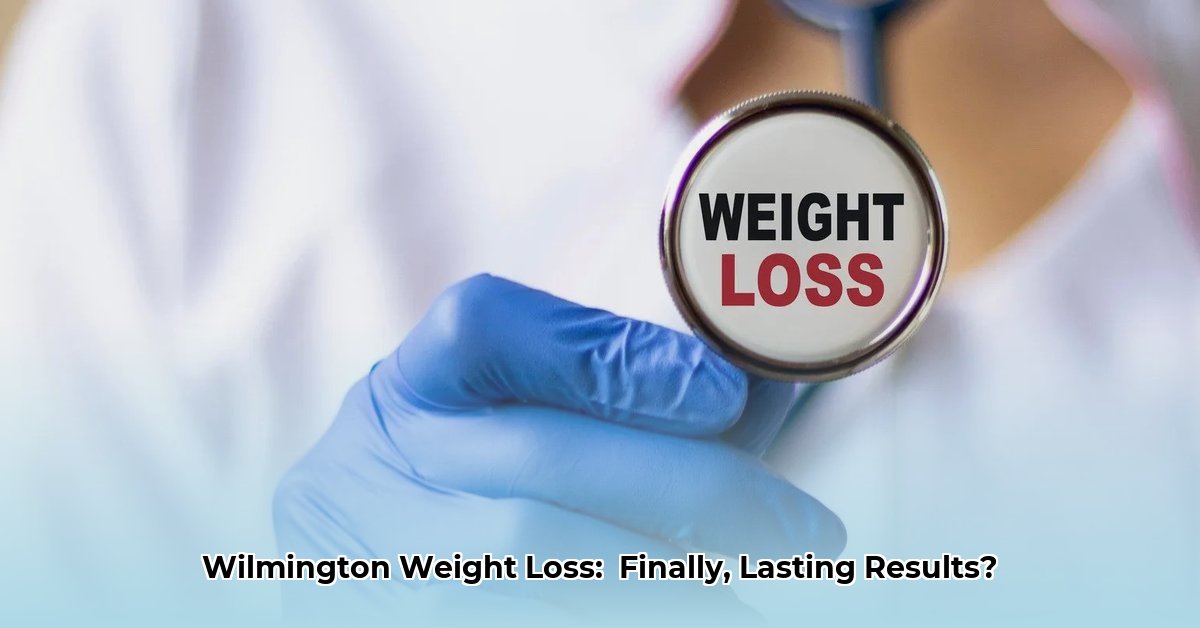
Weight Loss Programs in Wilmington, NC: A Review of Wilmington Weight Loss (WWL)
Thinking about losing weight in Wilmington, NC? Navigating the numerous weight loss programs available can be challenging. This review examines Wilmington Weight Loss (WWL), a program utilizing nutraceuticals and personalized coaching. We'll present a balanced perspective, analyzing available data and highlighting both positive and negative aspects to help you make an informed decision.
Program Overview: Wilmington Weight Loss (WWL)
WWL distinguishes itself by combining proprietary nutraceuticals (dietary supplements intended to improve health) with individualized coaching. The program aims for significant weight loss and improved overall health. While specific details regarding the nutraceutical formulation remain undisclosed, the coaching component focuses on personalized support and behavioral modification strategies to sustain weight loss. The cost structure and accessibility of the program require direct inquiry with WWL.
Analysis of Claims: Evidence and Limitations
WWL reports impressive weight loss results—over 30,000 pounds among over 1500 clients. However, this data lacks independent verification, originating solely from WWL's internal records. While client testimonials describe weight loss ranging from 22 to 75 pounds, along with reported improvements in energy levels, sleep quality, and joint pain, these remain anecdotal and lack the rigor of scientifically controlled studies.
A client survey indicated positive self-reported outcomes (e.g., 68% reported increased energy). However, this survey lacked a control group, making it impossible to definitively attribute these improvements to WWL. The absence of independently verified data significantly limits the conclusiveness of these findings. Visual representations of the data (charts, graphs) are unavailable at this time.
Competitive Analysis: Wilmington's Weight Loss Landscape
WWL's approach differs from other Wilmington weight loss programs. Many centers focus solely on dietary plans or exercise regimens, while others integrate multiple strategies. A comprehensive comparison requires further research into these alternative programs, utilizing resources like Yelp reviews and online directories to evaluate their offerings and methodologies.
Stakeholder Perspectives: Short-Term and Long-Term Implications
- WWL Management: Requires increased transparency by providing independent verification of results and openly disclosing the ingredients of its nutraceuticals. Long-term success hinges on establishing scientific credibility and regulatory compliance.
- Potential Clients: Should carefully weigh the anecdotal evidence against the absence of robust scientific backing. Consulting a healthcare professional before enrolling is crucial.
- Competitors: May leverage the lack of independent verification to highlight the strengths of their own programs.
- Regulatory Bodies: Should monitor WWL's marketing claims to ensure compliance with advertising regulations and protect consumer interests.
Conclusion and Recommendations: Weighing the Evidence
WWL presents a potentially effective weight loss program, but the lack of independent verification of its claims is a significant concern. The program's reported successes are encouraging, but further investigation and robust scientific evidence are necessary to solidify its effectiveness and safety.
Recommendations for Potential Clients:
- Consult your physician or a registered dietitian before starting any weight loss program, including WWL.
- Thoroughly research alternative programs in Wilmington, NC, comparing their methodologies and client reviews.
- Critically evaluate the available data, noting the absence of independent verification for WWL's claims.
Recommendations for WWL Management:
- Conduct independent, peer-reviewed clinical trials to validate the program's effectiveness and safety.
- Publicly disclose the full ingredient list of the nutraceuticals used in the program.
- Improve transparency in reporting weight loss results, using verifiable metrics and methodologies.
Risk Assessment and Regulatory Implications
The use of proprietary nutraceuticals presents a key risk. Without detailed ingredient information and independent testing, potential adverse effects and long-term health consequences can't be adequately assessed. WWL must ensure full compliance with FDA regulations regarding labeling, marketing, and safety standards for its supplements.
Rating (Subjective): Due to the lack of robust scientific evidence, a definitive rating cannot be provided. Further research is needed to assess its efficacy and safety.